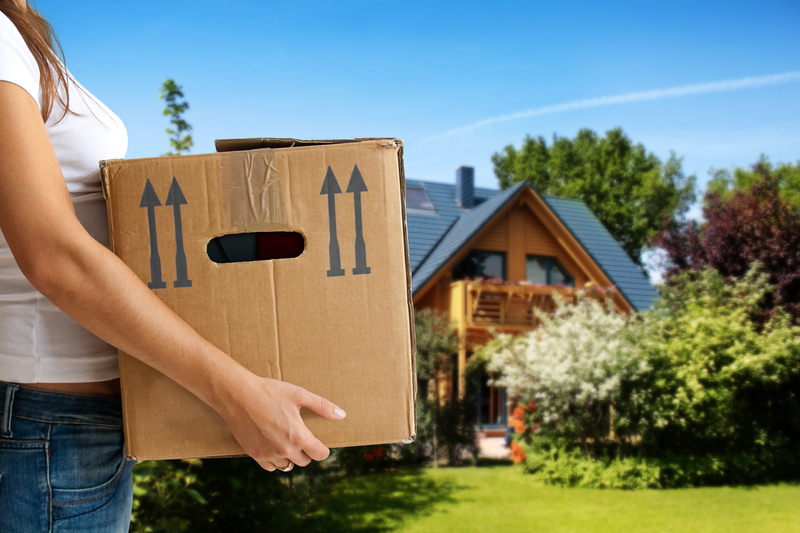The expert's guide to piano moving and avoiding common DIY mistakes
Posted on 11/06/2025
The Expert's Guide to Piano Moving and Avoiding Common DIY Mistakes
Moving a piano is a delicate task and often far trickier than most homeowners expect. A beloved piano--whether it's a stunning grand or a family upright--is not just another piece of furniture. It represents significant emotional value, a sizable financial investment, and is an intricate instrument that is highly sensitive to mishandling. If you're considering DIY piano moving, this in-depth guide will walk you through everything you need to know to do it right and avoid the disasters that often befall beginners.
Understanding the Complexity of Piano Relocation
Pianos are marvels of engineering. Their inner workings consist of thousands of delicate parts, from strings and hammers to keys and pedals. The sheer weight and awkward dimensions of pianos make moving a piano one of the most challenging household tasks. To illustrate:
- Upright pianos can weigh between 300 and 500 pounds.
- Grand pianos, depending on size, may reach up to 1,200 pounds.
- Pianos often have a high center of gravity and fragile legs and casters.
- Delicate finishes can be easily scratched or chipped.
- Even minor jostling can throw the instrument out of tune or cause interior damage.
Given these challenges, the majority of experts recommend hiring professional piano movers--but if you're committed to tackling the job yourself, read on to discover the right techniques, equipment, and precautions for a safe move.

Key Preparations: What You Need Before Moving a Piano
1. Measure Everything
Before you even touch the piano, start by measuring doorways, hallways, and staircases throughout the route. Record not just width and height, but also any tight turns, angles, or low ceilings.
- Measure the piano's dimensions (height, width, depth).
- Measure all door frames, stairwells, elevators, and hallways.
- Clear the path of all rugs, furniture, or fragile decor.
2. Gather the Right Piano-Moving Equipment
Attempting a piano move without the right tools is the most common rookie mistake. Here are the essential supplies for piano moving:
- Piano dolly: Specially designed for upright or grand pianos, these sturdy platforms come with heavy-duty wheels.
- Moving straps/harnesses: Help control weight and leverage during lifting.
- Furniture blankets & pads: Protect both the piano and your walls.
- Thick plastic wrap for further safeguarding delicate finishes.
- Heavy-duty tape to secure wrappings.
- Stair ramps or skid boards for homes with steps.
- Screwdrivers and tools for removing piano legs (grands) or pedal lyres.
- Gloves with grip for lifting.
Renting moving equipment from a professional supply store is often affordable and provides peace of mind.
3. Recruit The Right Help
Never attempt to move a piano alone. You'll need at least three strong, able-bodied helpers, ideally four or five for larger grand pianos or flights of stairs. Make sure your team is briefed on safety procedures and communication signals before starting.
Step-by-Step Process for DIY Piano Moving
1. Prepare the Piano for Transport
- Close and lock the keyboard lid to protect the keys. If no lock, secure it with moving tape.
- Wrap the entire piano in furniture blankets, securing with plastic wrap and tape. Focus on protecting corners, pedals, and edges.
- For grand pianos: Remove and wrap the legs, pedals, and the music stand separately. Always tip the piano gently onto its side using professional advice/guidance.
2. Lifting and Moving Upright Pianos
- Keep the piano in an upright position at all times. Tilting can damage the internal mechanisms.
- Use lifting straps and team coordination to gently raise the piano onto the moving dolly.
- Secure the piano to the dolly with straps. Move slowly and communicate constantly with your helpers.
- Navigate gently around corners and thresholds, using furniture blankets on walls if needed.
3. Lifting and Moving Grand Pianos
- Remove the lid, pedals, and legs.
- Tip the grand gently onto its side (preferably the side of the keyboard) with professional-grade skid board support.
- Wrap the entire body and loose parts with blankets and secure them.
- Lift onto dolly or skid board, ensuring weight is evenly distributed.
Grand pianos are especially prone to internal and cosmetic damage, so if you're at all unsure, consult with a professional piano mover.
4. Navigating Stairs and Tight Spaces
- Use a ramp or skid board on stairs. Never attempt to "carry" a piano up or down unassisted.
- Make sure all helpers are ready and that paths are cleared of obstacles and hazards beforehand.
- Take your time--safety and prevention of damage are paramount.
5. Securing the Piano in the Moving Truck
- Position the piano against the wall of the truck, with the back facing the wall if possible.
- Use moving straps to anchor the piano, preventing any shifting during transport.
- Fill gaps with sofa cushions or extra blankets to protect the piano and other items.
- Avoid stacking items on top of the piano at all costs.
The Top 10 Common DIY Piano Moving Mistakes--and How To Avoid Them
- Underestimating the Weight: Pianos are far heavier than they appear--never rely on guesswork.
- Using the Wrong Equipment: A regular dolly or moving cart won't bear the weight safely.
- Poor Team Coordination: Lack of communication leads to dropped pianos or injuries.
- Skipping Wrapping: Unprotected pianos are easily scratched, dented, or chipped.
- Improper Lifting Technique: Back injuries are common among DIY movers--always lift with your legs, never your back.
- Dragging Piano Across Floor: Can cause floor, leg, and internal damage.
- Forgetting to Lock/Protect Keys: Keyboard and pedals must be immobilized before transport.
- Ignoring Weather Conditions: Moisture or cold can damage the wood and internal mechanisms.
- Not Planning the Route: Tight corners and stairs require forethought and patience.
- Rushing the Process: Haste makes waste--take it slow for best results.
Insider Tip:
Document the piano's original condition with photos before you move. This can help should you need to make an insurance claim for accidental damage.
Why Hire Professional Piano Movers?
The Benefits Of Experience
As you've seen, piano relocation is a specialized skill set. Professional piano movers bring invaluable advantages:
- Expertise in handling all piano shapes and sizes.
- Professional-grade equipment and moving trucks.
- Insurance coverage in case of accidents.
- Efficient, safe navigation of stairs and tight spaces.
- Reduced risk to your health and your home.
If your piano is exceptionally large, antique, or needs to be moved any significant distance, hiring a piano moving pro is strongly advised.
After The Move: Caring For Your Piano
Even with the best preparation, pianos are sensitive to moves. Once your instrument is safely in its new location:
- Let it acclimate for several days to room temperature and humidity.
- Avoid placing it near vents, radiators, or exterior walls susceptible to moisture.
- Schedule a professional piano tuning within two weeks of the move.
- Inspect the instrument for any physical or mechanical damage.
Proper aftercare helps maintain tone quality and extends the life of your piano. Neglecting this stage is one of the most overlooked piano moving mistakes.

Frequently Asked Questions About Piano Moving
Can I move a piano upstairs or downstairs myself?
Movers strongly advise against DIY moves involving stairs. The risk of damage to the instrument, your property, and your personal safety increases dramatically with each step. Use professional movers with the right ramps and manpower when you need to navigate staircases.
How much does it cost to move a piano professionally?
Costs vary based on distance, type of piano, and specific challenges (e.g., stairs). Most basic in-town moves start around $200 for upright pianos and $350+ for grands, but complex relocations can exceed $1000.
Is it ever safe to transport a piano on its back or side?
Upright pianos must remain standing, but grand pianos are commonly moved (with protection) on their side. Never lay an upright flat, as it can result in irreversible internal damage.
Do I need to re-tune my piano after a move?
Yes. Moving (as well as changes in humidity and temperature) will impact tuning. Wait about two weeks after relocating to allow the piano to settle before having it professionally tuned.
Conclusion: Weighing The Risks and Benefits of DIY Piano Moving
Relocating a piano yourself is absolutely possible, especially for shorter moves and smaller instruments, but it requires meticulous planning, patience, and the right equipment. Never underestimate the weight or fragility of your piano, and never cut corners--repair costs can quickly exceed the price of hiring a professional.
Whenever in doubt, consult with a professional piano moving service--even an hour of expert advice can save money, prevent damage, and keep everyone involved safe.
By following this comprehensive expert's guide to piano moving and avoiding common DIY mistakes, you'll ensure your cherished instrument arrives at its new home in perfect condition--ready to fill the space with music once again.
Latest Posts
Expert Tips on Enjoying a Stress-Free House Move
Your Ultimate Guide to Pre-Move Decluttering Success
The expert's guide to piano moving and avoiding common DIY mistakes



